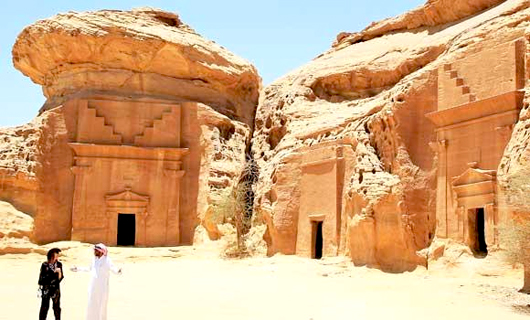
Jeddah, Aug 4: A Saudi-French archaeological team has unearthed in Najran what might be considered the oldest inscription in the Arabic alphabet, said a spokesman from the French Foreign Ministry.
“The epigrapher Frédéric Imbert, a professor at the University of Aix-Marseille, found the Nabatean Arabic inscription about 100 km north of Najran near the Yemeni border,” said the spokesman. “The first thing that makes this find significant is that it is a mixed text, known as Nabatean Arabic, the first stage of Arabic writing,” he said.
This script had previously only ever been seen north of Hejaz, in the Sinai and in the Levant. The second is the fact that these inscriptions are dated. The period indicated corresponds to the years 469-470 AD. This is the oldest form of Arabic writing known to date, the “missing link” between Nabatean and Arabic writing, he added.
This discovery, which is important to the history of the Arabian Peninsula and language, represents a success for the network of archaeological missions funded by the French Ministry of Foreign Affairs and International Development, which executed 148 projects this year in more than 60 countries worldwide. It is also an excellent example of cooperation between Saudi Arabia and France, the official said.
Many examples of graffiti and inscriptions, largely of names and greetings, are a testament to widespread literacy within Nabatean culture, which extended as far north as the north end of the Dead Sea.
No Nabatean literature has survived with the exception of a few letters.





Comments
Add new comment